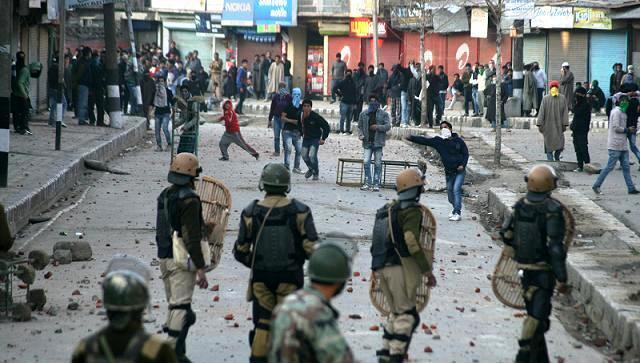
There are several reasons for the Kashmir conundrum but one less looked at is the Article 370, which has hindered Kashmir from being an integral part of India.
In their first day in office, the Narendra Modi government kicked up storm after Jitendra Singh, a Minister of State in the Prime Minister's Office, stated that the government wants to convince the stakeholders to repeal Article 370.
"The process of repealing Article 370 has started. We are speaking to the stakeholders," the newly appointed MoS said.
The issue has raked up quite a controversy, especially as Jammu & Kashmir Chief Minister Omar Abdullah strongly objected to the statement. Several other Kashmiri politicians also expressed their opposition to the comment.
But here are five reasons why it's about time to do away with Article 370:
- The current controversies apart, looking back at how 370 was formulated despite the resistance of Sardar Vallabhbhai Patel and BR Ambedkar - the two great architects of India, it reflects how apprehensive they were of the status. But still Pandit Jawaharlal Nehru got the Act passed, thinking that the temporary status will get eroded on its own over a period of the time. However, it has been over 70 years, and still the Kashmiri politicians cry foul, claiming that removal of the special status will hamper the rights of Kashmiris. But what it really does is, it makes Kashmir look not a part of India, and thereby it gives the separatists, Islamists and even the international community the right to claim that Kashmir is still a free land.
- The J&K politicians have resisted any debate on Article 370. It is often believed that the special provision mandates that the Central Government cannot makes legislation for J&K, except with respect to Defence, Foreign Relations and Communication. But in reality, the status more or less exists only on paper, and various governments in Delhi - in collusion with the government in J&K - have been able to bring in desired legislations.
- In J&K, outsiders have joined hands with local businessmen to set up several small and big factories. The people of J&K have found a solution - a person who is a permanent resident of state buys the land, while the outsider invests the money. There is clearly loopholes in Article 370, which business-minded Kashmiris are exploiting. Then why not rebel the law, and bring in fair trade!
- It is largely claimed that Article 370 is the bridge that brings J&K and New Delhi together, and tampering it would hurt the Kashmiri sentiment. However, such claims are hogwash as Article 370 is largely a non-issue for an average Kashmiri. Article 370 is useful for the J&K politicians to hold Delhi at ransom. While for the masses, the resolution of Kashmir conflict is the only important issue.
- Ambedkar, the architect of the Indian constitution, had warned Nehru that the Article will make the integration of Kashmir difficult for India. And today, that forewarning is all the more coming true. Most importantly, J&K grants Muslims dual citizenship under the special status, while the others are denied. The Article brings in more division in the state which is trying to be homogeneous but has a substantial number of Hindus, Buddhists, Gujjars and Bakarwals as well.

















